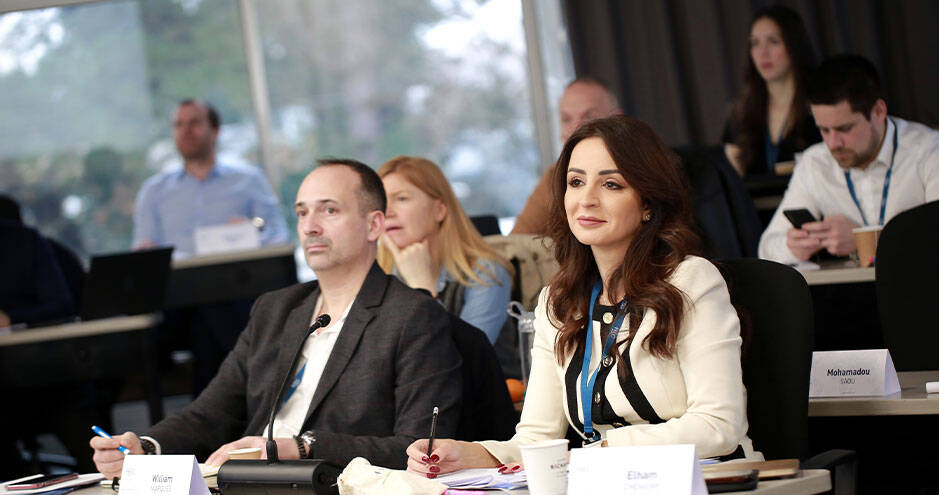Transforming Business Sustainability: The Revamped Sustainable Transition Management Program
Sustainability is the way to stay profitable in a world of changing priorities. Amid the growing urgency for businesses to adopt responsible practices, HEC Paris has overhauled its Sustainable Transition Management program to equip executives with the tools to navigate this complex landscape.

Comprising five dynamic online courses covering sustainability essentials, strategy, finance, marketing, and value chains, the STM program was launched in 2019 to address the pivotal challenges companies face in achieving sustainability. The primary goal is to empower managers and executives to lead their companies through a sustainable transition. What has made this program unique since day one? Its inclusivity caters to managers and executives ranging from sustainability novices to seasoned professionals.
A typical STM cohort comprises managers aiming to incorporate sustainability into their roles, top executives seeking to pursue a career in sustainability, CEOs desiring a comprehensive understanding of the subject, and consultants wishing to guide their clients toward sustainable practices.
Addressing trends and feedback
In response to the rapidly evolving sustainability landscape, the STM program's academic team, led by Bénédicte Faivre-Tavignot, Associate Professor of Strategy and Academic Director, has restructured the program to better address current challenges.
Updates were made based on post-COVID changes, including the relocation of value chains, the impact of the Ukraine war, such as access to energy, the latest crises, and emerging sustainability trends... but not only. The academic team also integrated feedback from previous participants, who wanted to fully grasp and apply the academic content to their own reality.
The program prioritizes flexibility to remain relevant and practical. Bénédicte Faivre-Tavignot explains:
“We integrated a variety of pedagogical formats, utilizing tools and AI to deliver up-to-date content and facilitate a comprehensive learning experience.”
First, ‘hot topics’ –new trends and crises, are now covered through articles, podcasts, and videos featuring avatars–quickly updated thanks to Artificial Intelligence, while webinars now focus on ‘timeless’ key concepts.
Second, previous participants' valuable input led the team to design specific exercises based on the participants’ experience within their respective companies. These exercises are complemented by live sessions, which have always been an important practical part of the program. While they facilitate direct interaction with HEC Paris Professors and experts and ensure queries are addressed promptly, these live exchanges allow participants to ask questions about their specific business issues and get valuable insights from professors and fellow participants.
The program combines current events and foundational knowledge, creating a multifaceted learning experience. In addition to coursework, participants engage in quizzes, networking opportunities, and collaborative exercises, sharing best practices.
Providing a holistic view of business sustainability
While the interactive format enhances learning, the program's core content is central to addressing the needs of sustainable business practices.
- Sustainable Transition Management Essentials: From our planet’s history to the new paradigm.
- Sustainable Strategy, including Rethinking Strategy Analysis, Retooling Business and Corporate Level Strategies, Strategy for Purpose, etc.
- Sustainable Finance: the rising expectations and how to take into account the ESG factors
- Sustainable Value Chain: Achieving sustainable operations, Circular economy and Decarbonization…
- Sustainable Marketing: From The drivers of “sustainable consumption” by consumers to Sustainable brand strategy, brand portfolio, and Sustainability in the BtoB relationships.
As the Academic Director remarks, 'originally, the curriculum encompassed seven primary subjects. Thanks to this new strategic selection, the current version of the program ensures that participants gain a well-rounded understanding of sustainability in its key organizational facets”. Participant feedback once again played a crucial role in identifying these core topics and aligning the program with the evolving landscape of sustainability challenges.
Overcoming Executive Obstacles: A bridge to sustainability
Executive leaders often face obstacles in transitioning to sustainable business practices, including a lack of practical knowledge and perceived conflicts between profitability and sustainability. The STM program acts as a bridge, providing executives with the tools, knowledge, and frameworks needed to integrate sustainability seamlessly into their organizational strategies. Through case studies, analytical frameworks, and discussions, participants learn to align sustainability goals with business objectives, engage stakeholders, foster innovation, and overcome implementation challenges.
For Marleen De Backer, a 2023 participant with two decades of expertise in international business development within the Advertising and Event sectors, the STM program perfectly aligned with her career transition goals.
“With the current environmental and societal challenges, I wanted to step out of these industries to broaden my skills in sustainable transition management.”
The program met her needs as it “covers the main concepts of sustainability, and how to apply this at company level.”
The STM program at HEC Paris emphasizes practical application and adaptability. It aims to translate theoretical knowledge into concrete actions for sustainable development and equip participants with strategies to create long-term value for businesses and society.
For those seeking to master the intricate landscape of sustainability and join a vanguard of leaders poised to enact transformative and systemic change, this program represents a critical stepping stone.